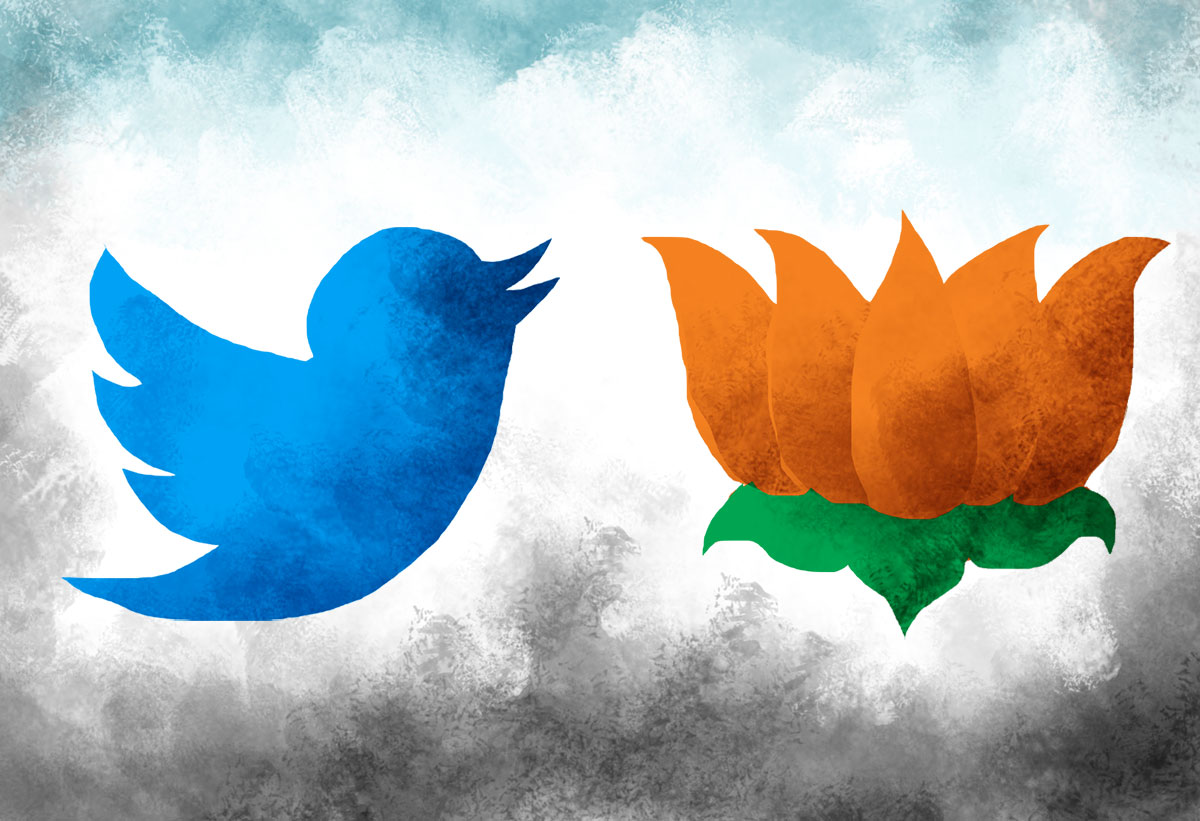It was amusing to hear Minister Jaishankar's argument of tech companies being influential non-State actors.
If only he looked at his own party before saying what he did, notes Shyam G Menon.

During a recent interactive session with former British prime minister Tony Blair at the India Global Forum, External Affairs Minister Subrahmanyam Jaishankar said that big tech companies enjoy huge power and influence as non-State players and such concerns cannot be overlooked citing freedom of expression.
The comments coincided with charges pressed against Twitter in India.
Social media is only a portion of the trials digital technology's disruptive growth has foisted on us.
At its heart lay the disparity in feel and outcome between human-to-human interaction and the ability of computer systems to deal with data in a cold, mechanistic fashion.
Because the latter doesn't tire or get bored like humans and is very fast in the specific, industry has us dealing more and more with machines than people.
In turn, our sense of an ideal human has transformed to an admiration for smart thinking, efficiency and repeatability.
An industrial flavour has been percolating into our imagination, traditionally used to empathy, questioning and reasoning.
Dissent has eroded; in its place, a mercantile pragmatism, flourishes. Not everyone enjoys this.
As a non-techie (and often at the receiving end of technology's march), my guess on why the latest misalignments occurred is that industry has the luxury -- in terms of funding -- to introduce products and services before the technology concerned becomes mature and human-friendly.
The urge has been to capitalise on a lead, commercialise fast, ignite a trend and cash in on market opportunities lest they evaporate or get cornered by competition.
In the process, customers have strained to cope with machine logic; technologies have matured on the fly.
Disruptive growth has become an end in itself.
Can we voice our disapproval? We can. But the power of huge industrial investments to shape our world ensures we won't be heard or, the hearing stays a ritual for the future is already forecast.
The inevitability of what lay ahead -- as decided by the tech savvy among us and not all of us -- has played a part in compounding the frustration experienced.
We now have a generation adept at technology and imagining with its architecture ingrained, but challenged to understand what being human is.
A vicious cycle has begun.
Among the serious problems is one the minister reportedly cited giant companies and the systems they operate harvesting user data.
Harvests of this sort can be exploited for commercial gain.
They can also be leveraged by the power hungry to trap us in models of existence we dislike.
For example, the proto-surveillance State is already upon us.
If we aren't careful, the trend will graduate to marketing the virtues of surveillance and monitoring (all in the name of keeping us safe) followed by a recast of public governance in supporting role.
A surveillance State will be eminently enjoyable for those attaching low value to freedom, and suffocating for the rest.
The above picture of excesses by technology is a generalisation. It is as accurate as non-techie's understanding of technology. But the drift cited, exists.
In June 2021, a small incident in the world of music captured the predicament beautifully.
Some of us born in the 1960s or earlier, would have grown up listening to the Pink Floyd song, Another Brick in the Wall.
It is a song that cautions against the surrender of individuality; the song does it in a way only art can.
In June, the band's founding member, Roger Waters, revealed that he had been made a lucrative offer by a social media giant to feature the song's second part in an advertisement.
His answer was an emphatic no. However, the question despite Waters is: For how much longer will the imagination the song represents (and which, we liked growing up), hold out?
So, to put things in a nutshell, I empathise with Jaishankar's view that not everything the big tech companies do can seek protection under freedom of expression.
But I have a problem.
The edifice of Right-wing politics, to which Jaishankar belongs, reminds of the wall in Pink Floyd's unforgettable song.
As an ideological formation sold to such visions like uniformity, conformity, discipline and people marching in unison to a commonly shared, exalted goal; democracy and affection for freedom have never been the strong points of the Right-wing.
Neither the minister nor his party complained earlier, when social media (which gets the BJP's goat these days more than tech companies per se) turned outright vicious and fears of an approaching dystopia surfaced.
Remember the trolling and widespread animosity in social media preceding the 2014 general elections? The BJP reveled in it.
More than any other party, the BJP leveraged vitriolic trolling to shut down those disagreeing with its views.
When all this was happening, where was the establishment's opposition to tech companies? In hindsight, it appears things worked favourably for the BJP then.
Of late, things have been less than favourable. Hence the sudden pursuit of justice?
If it was a case of closing ranks to shut out critics in 2014, the following years of Right-wing rule were characterised by cold shoulder-treatment aka You can keep on protesting, I don't care.
Past cold shoulder, political opponents and critics get mocked or silenced with unfair charges slapped on them.
The ruling party and its loyal supporters manufacture alternative narratives defending their position.
There is a pattern to the behaviour. It is similar to the futility some felt dealing with the digital onslaught of tech companies.
Very rarely does anyone in the imposing digital wall hear you out.
They don't have to because they know the future is theirs.
The ways of the digital world are older than the BJP's current stint in power, which is an extension of a journey commenced in 2014.
So, who learnt from who, the art of making people/voters submit?
Don't the BJP's models betray big tech's operating style? Sample, for instance, what a secularist may have felt, enduring Right-wing politics over the past few decades.
You put up. Exactly like you do with technology.
But it is in the comparison of tech companies to non-State actors that Jaishankar scored a self-goal.
The presence of non-State actors in its operating space has been an angle consistently associated with the politics of the BJP.
The Right-wing is hydra-headed and only one head is publicly positioned as political and contesting elections.
The rest are social workers, nation builders; they have their chosen names. Active in their own way, they propagate, provoke and campaign as required.
Their actions converge to the advantage of the BJP.
The biggest non-State actor in the Right-wing is the RSS. Indians are aware of this hydra- headed design and the force multiplier it is for the BJP.
How different is this arrangement from corporate lobbies; now in the case of technology companies, compared to the danger of powerful non-State players?
If non-State actors are a problem, why does the BJP indulge the model in domestic politics?
Just as Jaishankar feels uncomfortable at the non-State actor propensities of big tech, aren't those opposed to the BJP correct in their discomfort with the non-State actors in the Right-wing's line-up?
Given the similarity in models employed, it is hypocritical to condemn the disruptive growth caused by technology and condone similar disruptions caused by virulent politics in our social fabric.
With such known grey areas to the BJP, it was amusing to hear the minister's argument of tech companies being influential non-State actors.
If only he looked at his own party before saying what he did.
Where instincts are similar, disagreements are temporary.
On July 3, Ravi Shankar Prasad, then the minister for information technology, was reported lauding major social media platforms for filing compliance reports as per new IT rules. He called it a big step towards transparency.
Twitter behaved a bit differently, appointing an India grievance officer, based however in the US.
It seemed love afresh in the techno-political wall.
Shyam G Menon is a Mumbai-based columnist.
Feature Presentation: Aslam Hunani/Rediff.com











